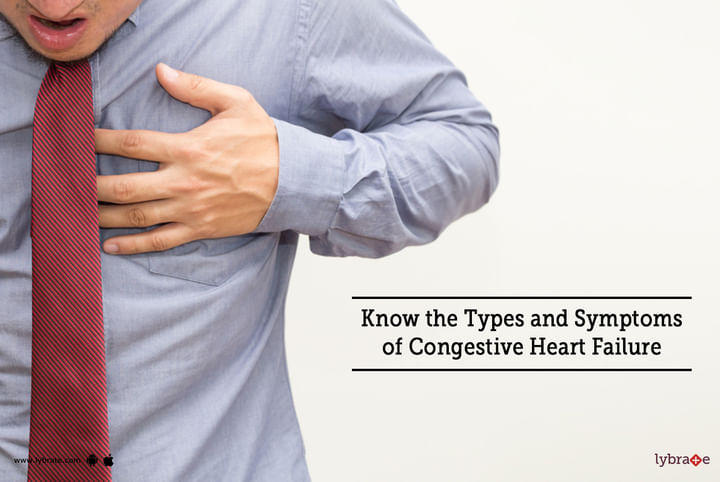Know The Types And Symptoms Of Congestive Heart Failure!
Congestive heart failure (CHF) is defined as any structural abnormality of the heart. It is the most common birth defect, in which the basic function of the heart to pump blood is affected.
Types of congenital heart failure
Congenital heart defects could be of many types, few of the common ones are:
-
Holes in the heart: In this condition, there could be a single hole or multiple holes in the heart chamber, walls or between major blood vessels leaving the heart.
-
Obstructed blood flow: Due to narrowed blood vessels or heart valves, it becomes difficult for your heart to pump blood. This leads to enlargement of heart.
-
Abnormal blood vessels: This is a structural abnormality, in which blood vessels going to and from the heart aren’t formed or positioned correctly.
-
Heart valve abnormalities: Any functional abnormality of heart valve, which impacts the blood flow like a problem in the opening and closing of valves.
-
An underdeveloped heart: In case of premature birth, there are chances that heart fails to develop completely and properly.
-
A combination of defects: In rare cases, infants are born with several heart defects. It could be a combination of one or more of the above conditions.
Symptoms of congestive heart failure
CHF can be detected at three stages and symptoms vary accordingly. The three stages of diagnosis are:
- Pregnancy: The first stage of diagnosis is during the ultrasound. In case your doctor detects an abnormal heartbeat, he/she might suggest further investigation like an echocardiogram, a chest X-ray, or an MRI scan.
- At birth: In case if there are no symptoms or diagnosis during pregnancy, the early symptoms of CHF at birth are:
-
Pale or bluish skin especially around lips, fingers, and toes
-
Breathlessness
-
Difficulty in feeding
-
Low birth weight
-
Early childhood: In a few cases, symptoms of CHF are not visible until early childhood. But in case you observe any of the following symptoms, consult with your doctor:
CHF is a common birth defect among infants and can be treated if diagnosed at an early stage. In most cases a heart transplant surgery is required, your doctor will guide you best about it.


+1.svg)
